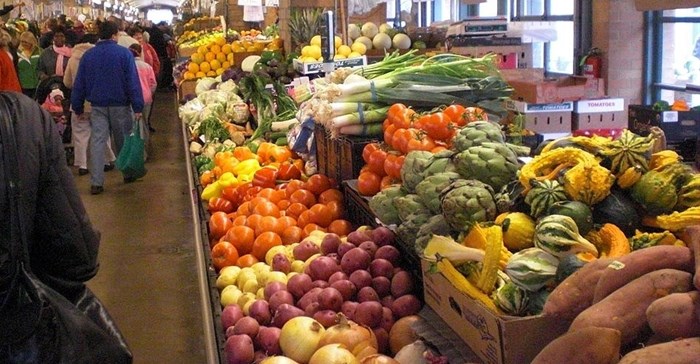






"Without doubt, over the past year, the Mooketsi Market has had the greatest impact on the local community. Many of the small subsistence farmers now have an outlet for their produce, and we constantly engage these farmers around issues like their products, packaging, sizing, sorting, grading, quality, etc. We also host regular emerging producer training sessions to educate these farmers on the mechanics of a fresh produce market to further ensure their sustainability," Oosthuizen explains.
Aside from jobs for producers, the Mooketsi Market has also created several direct and indirect jobs through transport functions, increased taxi activity, porter functions, market staff, and external food and beverage suppliers.
In addition, as more product lines are added to the market and a consistent supply of these lines becomes available, so local market buyers will be able to increase the size of their own businesses, creating further job opportunities downstream.
The Mooketsi Market began selling just tomatoes and onions, and has grown to offer buyers more than 30 product lines from all the fresh produce categories. These include stone fruit, pome fruit, citrus, melons, root vegetables, green leafy vegetables and squashes and pumpkins.

"To date, our largest growing categories are potatoes (± 20% of total sales, 40-60 tonnes per day); apples (±10% of total sales, 10-30 tonnes per day) and carrots and beetroot (±5% of total sales, 5 to 10 tonnes per day). Although these figures can largely be attributed to the fact that these were the first new lines to be introduced after opening and have had the longest time to grow, we're confident other lines will show similar potential in the future," Oosthuizen adds.
The market's positive growth over the past 12 months can also be seen in its volumes, which have increased by 12.38% on last year, driven by strong growth in the number of buyers. At start-up, the market registered around 800 buyers - a figure that now sits well past the 6,500 mark, comprising predominantly small shops, hawkers, kiosks and smaller wholesale traders (75%) followed by feeding schemes (15%) and retail stores (5%). The market also attracts a few cross-border buyers from Mozambique and Zambia.
Oosthuizen says growth efforts over the next year will focus on increasing sales and buyers' business. "We hope that by enhancing the quality, variety and consistency of the produce received from local farmers, food security generally in the region will increase, our buyers will increase supply to their clients, and there will be positive growth all round," he concludes.